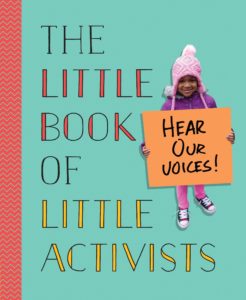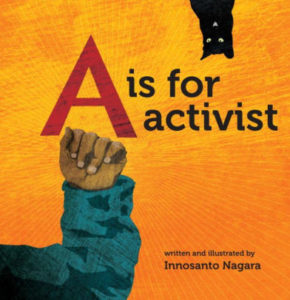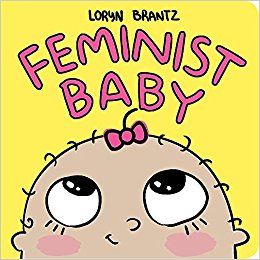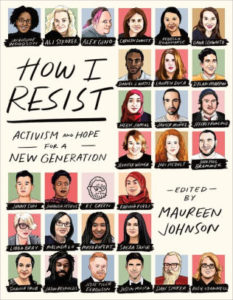Yesterday’s post on Leadership asked the question: “What, exactly, is leadership?” It’s not as easy a definition as it looks, but you might not know that from current political rhetoric. With children earning kudos for walking out of school and marching on Washington to demand change (today it’s gun control, tomorrow it’s LGBT rights or whatever), Leadership = Activism.
The activist urge has always been part of our American heritage. The Declaration of Independence is essentially an activist document, setting out reasons (some of them more reasonable than others) for establishing a new nation built on the proposition that “all men are created equal.” Abolition, temperance, and women’s suffrage were all activist movements, and all succeeded (even temperance, for a short time) because they were focused and disciplined.
“Focused” and “disciplined” don’t seem as relevant to today’s activist movements, especially the Progressive ones. Women’s rights, LGBTQ rights, gun control, immigration, and redistribution all blend into each other in one angry shout: “Resist!” The current occupant of the White House is the catalyst for this surge of passion, but almost any other Republican would have provoked a similar, only slightly less intense, response (minus the pink hats).
The Little Book of Little Activists is a collection of quotes from kids, accompanied by photos 

A Is for Activist by Innosanto Nagara has been around since 2013. It’s available mainly—or only—as a board book, and marketed for ages 3-5, who get to curl up and listen to lines like this:


B is for Banner, Bobbing in the Sky. Billowing in the Breeze, ‘cuz you’re not shy!
C is for Co-op. Cooperating Cultures Creative Counter to Corporate vultures. Oh, and Cats. Can you find the Cats?
Finding the cat is pretty much the only nod to the sensibilities of an actual three-year-old, who is not going to sit still for your explanation of Corporate vultures. (These nefarious types are also Silly Selfish Scoundrels Sucking on dinosaur Sludge because they won’t get on board with S is for Solar. Seriously!) Most of this is just dumb, but much of it looks like indoctrination, such as L is for LGBTQ. Love who you choose.
Feminist Baby by Loryn Brantz is another board book, this one aimed at ages 0-3. It’s both 

It’s hard to tell how many preschoolers will be won to activism by such drivel, but teens are another matter. Already impressionable and longing find their place in the world, they are easily 

At the risk of sounding over-dramatic, all of these books are warning signals: We’re coming for your kids. To too many modern activists, there is simply no way to think about an issue but the way they think. Yet the antidote is not indoctrinating our own kids in turn, but reading books like I Resist with your older teens and discussing the pros and cons of the argument. Rational or irrational? Realistic or utopian? Where does the logic hold up, and where does it falter? What’s missing from these perspectives that Christ provides? Christianity can contend with any point of view, in any market. We can’t flee from “Resistance,” but we can meet it with firm, assured, and loving resistance of our own.
Stay Up to Date!
Get the information you need to make wise choices about books for your children and teens.
Our weekly newsletter includes our latest reviews, related links from around the web, a featured book list, book trivia, and more. We never sell your information. You may unsubscribe at any time.
Support our writers and help keep Redeemed Reader ad-free by joining the Redeemed Reader Fellowship.
Stay Up to Date!
Get the information you need to make wise choices about books for your children and teens.
Our weekly newsletter includes our latest reviews, related links from around the web, a featured book list, book trivia, and more. We never sell your information. You may unsubscribe at any time.
FREE Bible Guide!
Get a guide to the Best Bibles for Children and Teens. Perfect for an Easter gift.
We'd love to hear from you!
Our comments are now limited to our members (both Silver and Golden Key). Members, you just need to log in with your normal log-in credentials!
Not a member yet? You can join the Silver Key ($2.99/month) for a free 2-week trial. Cancel at any time. Find out more about membership here.
3 Comments
Leave a Comment
You must be logged in to post a comment.


Hi..I too, am a Redeemed Reader. I love Jesus. And reading. And stories of redemption are my fave. Here’s the rub though: I’m afraid this post hits me as a short-fall. Yes, those historical movements (anti-slavery, suffrage) were good. But please, before you throw today’s movements under the bus for being “progressive,” remember that those historical movements were very progressive for their time. So, students today gathering, asking their government for change to protect them *in their schools,* you may see as progressive & therefore, activism; perhaps they are voicing their concerns in a peaceful way, just as anti-slavery & suffrage backers did as well. It seems like you are lumping movements you disagree with as “activism” and perhaps even foolish. Isn’t that the beautiful thing about our free nation, we get to express our opinions? Freely! Whether we have the agreement & backing of the majority or not.
-Mom of 5 in Tennessee
Ali, I appreciate your thoughts; thank you for taking the time to write. As I tried to make clear in the post, I’m not opposed to ‘activism’ per se–where would we be without the civil rights movement of the 1960s? (We have some good books to review about Martin Luther King in the near future!) My concern is that 1) there’s no need for little children to introduced to political issues they have no way of understanding, and 2) much of what passes for activism today is not clearly thought out or reasonably discussed. Maybe it never has been, but the Women’s March (to take one example) was such a hodgepodge of sloganeering and yelling I honestly could not make out what the issue was. I want opinions to be shared, and that’s why I encourage parents–especially Christian parents–to read books like “How I Resist” and discuss the arguments with those of their children who are old enough to understand. These are complex issues, not to be settled with soundbites and slogans carried by 2-year-olds.
I love this post!! Please let kids be kids and stop trying to politicize their childhood.